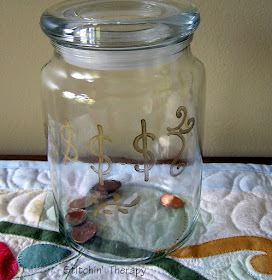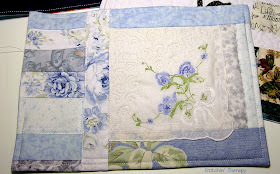I had a question about how I chose fabrics to bind a quilt from Linda. And what was I going to use on the latest scrappy quilt. A flood of things came to mind. Along the way I have learned a few things....mainly to follow my instinct at the end. I know some quilters plan ahead and cut binding strips as they cut pieces and borders. I don't always think about binding fabrics until I get to that stage. It is just a matter of preference and what effect you want.
So I will share my thought process and let you find your own way and inspiration. Please remember, my quilts are for use....on the walls, on the sofa or bed....not for big exhibition quilt show. If I was looking to win a big show, of course, I would need to change some of my ways. Judges look for things like hand stitched bindings, and bindings cut on the bias. Needless to say, mine usually are not. I'm not doing tutorials or "how tos".....there are plenty of those elsewhere. Just check Pinterest.

I see the binding as the final frame. Think of a picture frame and how it finishes off the print or painting.
So for a quilt.....It might look best to blend with the border fabric. Most of my small wall hangings have a binding that blends with the outer border. I want the center to be the focus. In this case, I used the same fabric. If I am short on fabric, I would just look for a very similar fabric to use.
Small watercolor quilts that have a solid border also get a binding that matches. There is so much going on in the center that a contrasting binding would be a distraction. If the border is a print or batik, I would also match as close as possible to it.

Other times, a contrasting binding accents the colors or fabrics in the center piecing. It might tend to lead the eye back to the center. For this baby quilt, the Mom wanted pink and green colors......so I made sure there was a bight pink binding for the finish. It's unexpected and fun in this case. And I got to use up a lot of that bright pink.
Another contrast binding to accent the color and pull all the blue/purple out to the edge. There was quite of bit of blue and purple in the body of the quilt and the border strip and binding just made it all pop.

Yet my favorite binding is mixed.....whatever strip is leftover from the center gets added to the binding. I simply string them all together until I have enough length to go around. You might note that I am guilty here of joining some fabrics bluntly rather than a diagonal join. I probably was short on fabric and needed every inch.
The diagonal join is the best method to use to distribute the bulk. Here's a good tutorial on joining binding strips. It is the technique I use.
One more.......This quilt had a very busy border, so it was easy to use up any leftover floral strip for binding. It was mixed floral strips and yet blended into the border without distracting from it.
The question about the latest scrappy rail quilt.....its binding will be an assortment of whatever leftovers I find. It is just that kind of quilt.
Maybe a few of my ideas will spark your creativity to experiment with your binding choice. Match it, mix it up, or find a bold contrast. As long as you like it, it is good.
Happy stitching.
So I will share my thought process and let you find your own way and inspiration. Please remember, my quilts are for use....on the walls, on the sofa or bed....not for big exhibition quilt show. If I was looking to win a big show, of course, I would need to change some of my ways. Judges look for things like hand stitched bindings, and bindings cut on the bias. Needless to say, mine usually are not. I'm not doing tutorials or "how tos".....there are plenty of those elsewhere. Just check Pinterest.

I see the binding as the final frame. Think of a picture frame and how it finishes off the print or painting.
So for a quilt.....It might look best to blend with the border fabric. Most of my small wall hangings have a binding that blends with the outer border. I want the center to be the focus. In this case, I used the same fabric. If I am short on fabric, I would just look for a very similar fabric to use.
Small watercolor quilts that have a solid border also get a binding that matches. There is so much going on in the center that a contrasting binding would be a distraction. If the border is a print or batik, I would also match as close as possible to it.

Other times, a contrasting binding accents the colors or fabrics in the center piecing. It might tend to lead the eye back to the center. For this baby quilt, the Mom wanted pink and green colors......so I made sure there was a bight pink binding for the finish. It's unexpected and fun in this case. And I got to use up a lot of that bright pink.
Another contrast binding to accent the color and pull all the blue/purple out to the edge. There was quite of bit of blue and purple in the body of the quilt and the border strip and binding just made it all pop.

Yet my favorite binding is mixed.....whatever strip is leftover from the center gets added to the binding. I simply string them all together until I have enough length to go around. You might note that I am guilty here of joining some fabrics bluntly rather than a diagonal join. I probably was short on fabric and needed every inch.
The diagonal join is the best method to use to distribute the bulk. Here's a good tutorial on joining binding strips. It is the technique I use.
One more.......This quilt had a very busy border, so it was easy to use up any leftover floral strip for binding. It was mixed floral strips and yet blended into the border without distracting from it.
Maybe a few of my ideas will spark your creativity to experiment with your binding choice. Match it, mix it up, or find a bold contrast. As long as you like it, it is good.
Happy stitching.










































